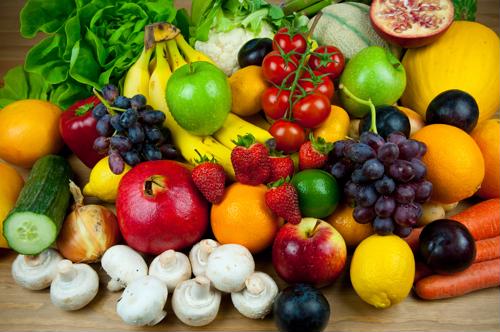This month, Hallelujah Diet was excited to welcome back Melody Hord, author and education specialist, to host the monthly webinar series. Titled "Less is More," the webinar focused on encouraging viewers to understand what exactly it is that leads to disease, with a focus on the negative impact of sugar in all of our lives. Well-versed in the Genesis 1:29 diet and lifestyle, Hord became a certified Health Minister in 2007, served as manager of Hallelujah Health Food Store for some time and even ran trainings with the Rev. Malkmus.
A Note on Fruits
Through her education, her research and what she likes to call personal trial and error, Hord has come to understand the clear and definitive link between sugar and disease. As she explained in the webinar, continual excess sugar in any form can impact your blood sugar and your health, as can excess carbohydrates. While she made clear that she is not out to forbid fruits or carbohydrates, thoughtful planning of what you consume each day can make a difference.

If you are not careful, the natural sugars and carbohydrates you consume during the day can add up quickly. Once the body has used all the sugar it requires for energy needs, it begins to experience unstable blood sugar levels. This puts strain on the pancreas, as it works to pump more insulin to reduce blood sugar. As a result, Hord has come to abide by the practice that when it comes to fruits and carbohydrates, less is enough.
Sugar and Disease
When processed foods and sugar cause damage to your health, the body becomes leptin- and insulin-resistant, Hord explained, reporting on data from "The Blood Sugar Solution, 10 Day Diet-Detox." This can lead to belly fat, the dangerous kind that leads to disease. As such, sugar intake in any form must be recognized - this includes colorful raw fruits of the earth. While fruits are an integral part of a primarily raw, plant-based diet, monitoring your fruit intake is key for avoiding and preventing illness and disease.
When initially adopting a high-raw plant-based diet, it is easy to gravitate toward sweet fruits and even over-consume them. Hord mentioned that many people also have imbalanced levels of candida yeast and that even fruit and carrot juice can really stimulate the growth of candida yeast and cause worsening symptoms. While smoothies are great because they are fast and you get 5-7X more nutrition from your food than by just chewing alone, Hord wares us that they can be a major source of sugar if we aren't careful.
One way to monitor your sugar intake is to measure the amount of glucose in your blood in the last three months with an A1C test. Consider these levels:
- 4 to 5.6 percent is a normal reading.
- 5.7 to 6.4 percent is a reading indicative of prediabetes.
- 6.5 and above is a diabetic reading.
"You want your glucose levels below 5.6 percent."
Hord emphasized the importance of knowing where you stand, using herself as an example. While she thought she was doing everything right, focusing on her nutritional intake, she was overlooking the amount of natural sugar she was consuming. When she went to measure her glucose, she discovered she was prediabetic.
How to Change Your Habits
If you become concerned about your fruit consumption, consider slowly cutting back on your serving size. Start by using just three-fourths of a banana in your smoothie, rather than the whole thing or opting for just a handful of blueberries instead of a half cup. Over time, you can modify your servings even more. If you are concerned that lack of fruits will tarnish the flavor of your smoothies, you're not alone. That's what Hord thought, too, when she began making Veg-smoothies. The good news is that she suggested a number of natural options for masking the taste:
- Mint and basil.
- Nut butters and milks.
- Vanilla.
- Coconut butter or oil.
- Ginger.
- Lemon or lime.
- Cayenne.
- Essential oils.
- Herbs.
Paul Malkmus also suggested adding in fresh herbs to your smoothies to help reduce blandness and improve taste. Additionally, replacing fruits with more cruciferous vegetables in your smoothies can help ward off cravings and deliver a number of health benefits. The sulfur-containing compounds in these greens have been shown to remove carcinogens and fight off cancer cells. Hord gave a great recipe for Broccoli rocks! Veg-smoothie as well as other Veg-smoothie recipes. The Broccoli rocks recipe calls for:
- 1 cup water
- 2 celery ribs
- 1/2 cup broccoli
- Large overflowing handful of kale
- 1/2 lime, peeled
- 1/4 avocado, seed and peel removed









